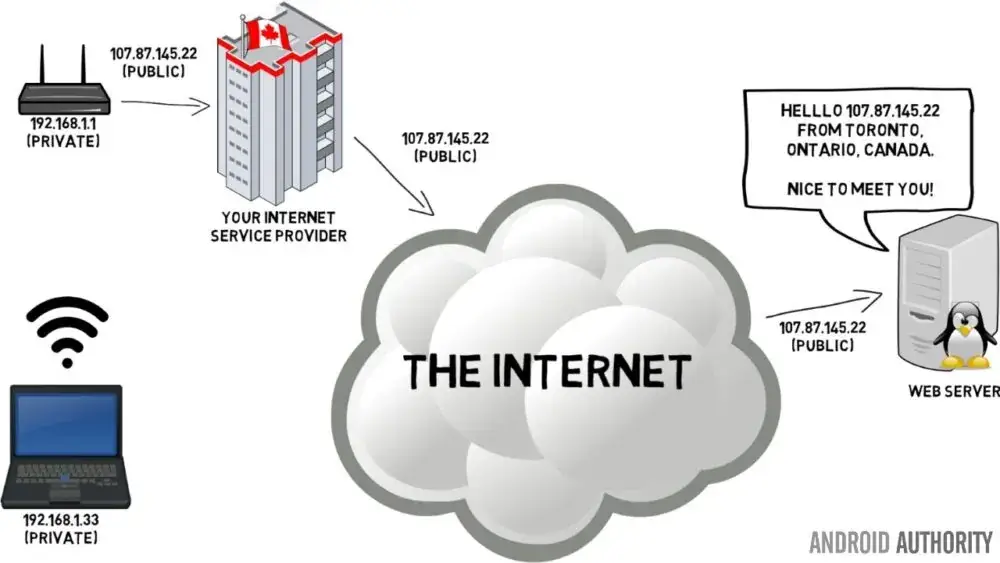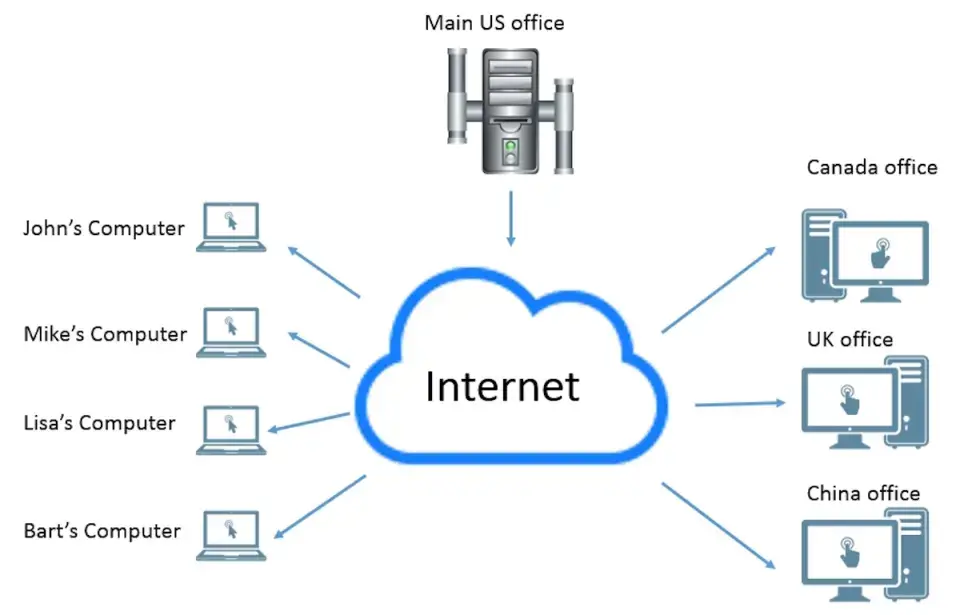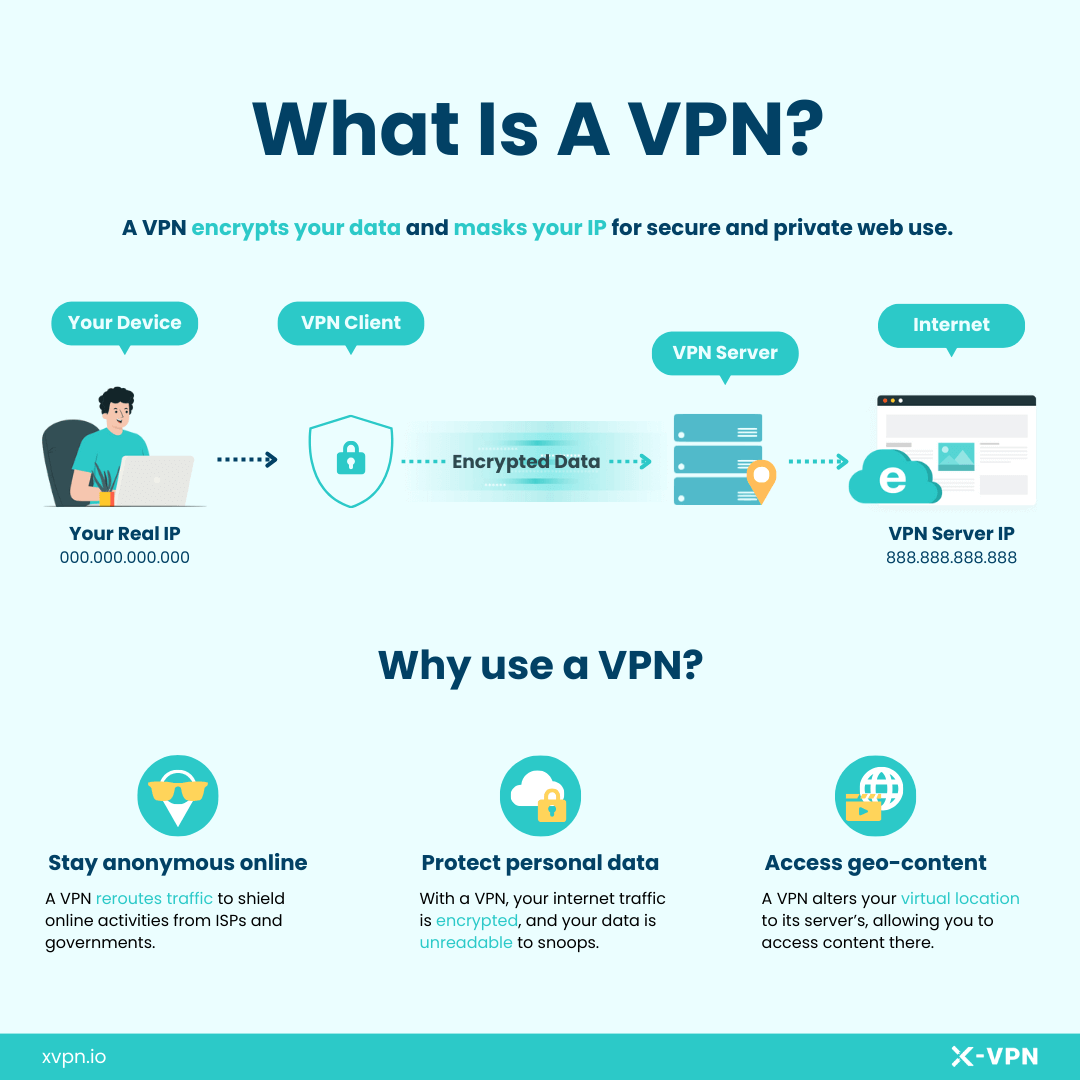While VPNs offer robust protection, they should be used alongside comprehensive antivirus software for maximum security. When choosing a VPN, opt for a trusted provider with a proven track record in safeguarding user privacy.
As our digital lives expand, VPNs have evolved from corporate tools to essential personal security measures. Whether you’re working remotely, streaming content, or simply browsing, a VPN adds a crucial layer of protection in our interconnected world.
Virtual Private Networks (VPNs) have become essential tools for online privacy and security. But what exactly is a VPN and how does it protect you?
Key features of using a VPN include:
- Enhanced privacy from ISPs and third parties
- Access to geo-restricted content
- Secure data transfer, especially on public Wi-Fi
- Protection against cybercrime and data theft

Demystifying VPNs: Your Digital Privacy Shield
Virtual Private Networks (VPNs) have become essential tools for online privacy and security.
A VPN creates an encrypted tunnel between your device and the internet, masking your IP address and location. This prevents others from intercepting your web traffic or tracking your online activity.
Key benefits of using a VPN include:
- Hiding your browsing history from your ISP
- Accessing geo-restricted content
- Protecting your data on public Wi-Fi
- Bypassing censorship and content blocks
When choosing a VPN, look for:
- Strong encryption (AES-256)
- A strict no-logs policy
- Servers in multiple countries
- Fast connection speeds
While free VPNs exist, paid options generally offer better security, speeds, and features. A trustworthy VPN is an invaluable tool for safeguarding your digital privacy in today’s connected world.
In this article, we’ll explore the meaning of VPN, how it works, and the numerous benefits it offers to ensure your online safety.
What does VPN stand for?
VPN stands for Virtual Private Network. It is a technology that creates a secure, encrypted connection between your device and the internet. By using a VPN, you can ensure that your online activities remain private and protected from prying eyes, hackers, and other cyber threats.
How does a VPN work?
A VPN works by routing your internet traffic through a secure, encrypted tunnel. When you connect to a VPN server, your device establishes a secure connection with the server, and all your internet traffic is then routed through this encrypted tunnel. This means that anyone attempting to intercept your data will only see encrypted information, making it virtually impossible to decipher.
Benefits of using a VPN
There are numerous benefits to using a VPN, including:
- Enhanced online privacy: VPNs encrypt your internet traffic, making it difficult for third parties to monitor your online activities.
- Secure data transmission: With a VPN, your sensitive information, such as passwords and financial details, remains protected from hackers and cybercriminals.
- Access to geo-restricted content: VPNs allow you to bypass geographical restrictions and access content that may be unavailable in your region.
- Protection on public Wi-Fi: When using public Wi-Fi networks, a VPN adds an extra layer of security to prevent others from intercepting your data.
- Improved online freedom: VPNs help you overcome internet censorship and access websites that may be blocked in your country.
VPN definition and explanation
A VPN, or Virtual Private Network, is a technology that creates a secure, encrypted connection between your device and the internet. It works by routing your internet traffic through a remote server, making it appear as if your device is located in a different geographical location. This helps to protect your online privacy and security by masking your real IP address and encrypting your data.
Understanding VPN technology
VPN technology relies on a combination of encryption protocols and secure tunneling to protect your online activities. When you connect to a VPN server, your device establishes a secure connection using protocols such as OpenVPN, IKEv2, or WireGuard. These protocols ensure that your data remains encrypted and secure as it travels through the internet.
VPN meaning for beginners
For beginners, understanding the meaning of a VPN can be simplified as a tool that helps protect your online privacy and security. By using a VPN, you can browse the internet with peace of mind, knowing that your personal information and online activities are shielded from prying eyes. VPNs are easy to use and can be installed on various devices, including smartphones, tablets, and computers.
VPN meaning in cyber security
In the context of cyber security, VPNs play a crucial role in protecting sensitive data and preventing unauthorized access. Many businesses and organizations use VPNs to secure their remote workforce and ensure that employees can access company resources safely from any location. VPNs also help to mitigate the risk of data breaches and cyber attacks by encrypting data transmitted over the internet.

VPN meaning and its importance
The importance of VPNs lies in their ability to safeguard your online privacy and security in an increasingly digital world. With the rise of cyber threats and data breaches, using a VPN has become an essential tool for individuals and businesses alike. By encrypting your internet traffic and masking your IP address, VPNs help to protect your personal information, financial details, and online activities from malicious actors.
VPN meaning for online privacy
One of the primary reasons people use VPNs is to maintain their online privacy. When you browse the internet without a VPN, your internet service provider (ISP) and other third parties can easily monitor your online activities. However, when you use a VPN, your internet traffic is encrypted, making it much more difficult for anyone to track your online behavior or steal your personal information.

VPN meaning and how it protects data
VPNs protect your data by encrypting your internet traffic and creating a secure tunnel between your device and the internet. This means that any data you send or receive while connected to a VPN is scrambled and unreadable to anyone who may intercept it. By using strong encryption protocols, VPNs ensure that your sensitive information, such as passwords, financial details, and personal messages, remains confidential and secure.
FAQ – VPN Meaning
- What does VPN stand for?
- VPN stands for Virtual Private Network. It is a service that encrypts your internet connection and hides your IP address to protect your online privacy.
- Why should I use a VPN?
- A VPN helps protect your online activities from being tracked by hackers, ISPs, and other third parties. It also allows you to access geo-restricted content and maintain privacy while browsing.
- How does a VPN work?
- A VPN works by routing your internet connection through a secure server, encrypting your data, and masking your IP address. This makes it difficult for anyone to monitor or intercept your online activities.
- Are VPNs legal to use?
- Yes, using a VPN is legal in most countries. However, some countries have restrictions or bans on VPN usage, so it’s important to check local laws before using one.
- Can a VPN improve my internet speed?
- While a VPN can sometimes slow down your internet speed due to encryption overhead, it can also improve speed by bypassing ISP throttling and providing a more direct route to the server you’re accessing.
In conclusion, understanding the meaning of VPN is essential for anyone who values their online privacy and security. By using a VPN, you can protect your personal information, secure your online activities, and enjoy a safer and more private internet experience. Whether you’re a beginner or an experienced user, incorporating a VPN into your digital life is a smart choice that can help you stay safe and secure in an increasingly connected world.


